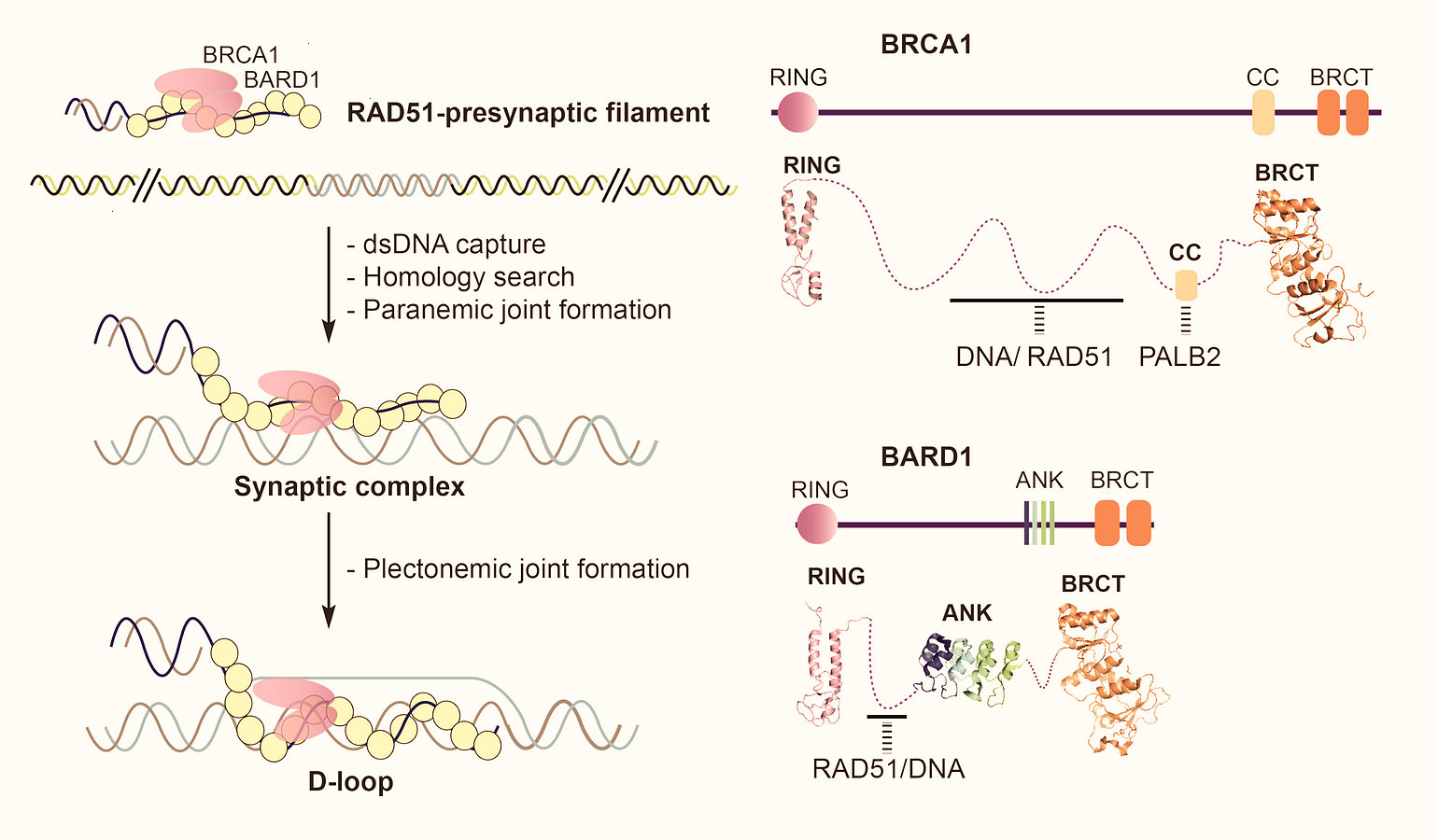Molecular Dissection of BRCA1 Tumor Suppression Networks
BRCA1 heterodimerizes with another tumor suppressor BARD1, and the resulting complex possesses DNA binding and ubiquitin E3 ligase activities, and interacts with proteins that function in diverse biological processes, including homology-directed DNA repair (HDR), DNA replication fork maintenance, DNA damage checkpoints, R-loop resolution and mitotic chromosome segregation. However, the mechanisms that underlie BRCA1-BARD1 dependent processes have not been determined because of the immense challenge of expressing and purifying the BRCA1-BARD1 complexes for mechanistic workup. Importantly, we have overcome this technical challenge, which has allowed us to begin providing mechanistic information regarding the roles of BRCA1-BARD1 in HDR (Zhao et. al. Nature 2017). In the future, we will continue to dissect the tumor suppression mechanisms of BRCA1-BARD1, with one specific focus on its ubiqutin E3 ligase activity, by using a synergistic approach of protein biochemistry, cell biology, and structural biology.

Mechanism of Homology Search and DNA Invasion

We discovered that BRCA1-BARD1 functions in the step of homology search and DNA invasion during homology-directed DNA repair (HDR). As BRCA1-BARD1 forms complexes with a number of protein factors that also are involved in HDR, we will investigate whether and how those BRCA1-BARD1 complexes particulate in the process (BRCA1 dependent pathway), and define its relationship with the BRCA1 independent pathways.
Probe Therapies for BRCA-related Cancers
Pathogenic mutations in BRCA1 and BRCA2 lead to genome instability and predispose afflicted individuals to diverse cancer types. BRCA1/2 mutant cancer patients in general respond well to therapy involving the use of a PARP inhibitor (PARPi) or platinum salt, but most would acquire drug resistance over time. Furthermore, many more mutations found in patients are variants of unknown significance (VUSs), as we do not yet know whether the gene mutations in question actually affect function and how severe the defect is. As such, it is essential to study the mutants to probe effective therapies for patient with VUSs or resistance to standard treatment.
